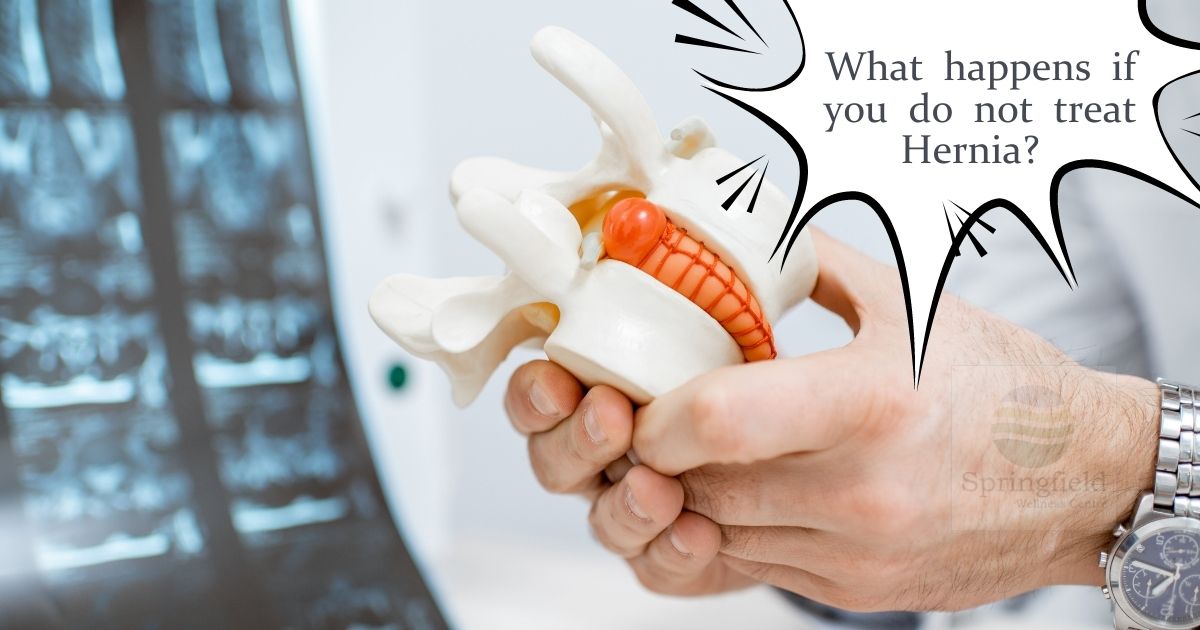What happens if you do not treat Hernia?
A hernia happens because there is a breach in the muscle layer and because of that there is a protrusion of internal organs or fat tissues. It is a condition that cannot heal on its own. Many people are able to delay surgery for months or even years. And some people may never need surgery for a small hernia but that is a very minuscule percentage.
The best treatment method for hernia is only surgery without any doubt. The immediate need for hernia surgery depends on many factors like age, the content of the hernia, your lifestyle, etc. But be rest assured, once there is a delay in surgery, the hernia hole becomes bigger over time. They also become more painful and can cause health risks in some cases. With this, the intestine and other organs can protrude the hernia hole.
Do all Hernia Require Surgical Treatment?
Not all hernias will require immediate surgical treatment but it is important to not ignore symptoms if a hernia occurs or if you know you have an existing hernia. Surgery for a hernia is almost inevitable in all cases. Research shows that most people with hernias and are aware of it have surgery within 10 years. Delaying a hernia surgery until the hernia is larger and the muscles are weaker may make surgery and recovery more challenging.
Non-surgical approaches to Hernia
Non-surgical approaches such as wearing a corset, binder, or truss may exert gentle pressure on the hernia and help keep the hernia in place. Such Non-surgical methods may ease the pain or discomfort and may be used if you are not fit for the surgery or you are awaiting hernia surgery.
Most inguinal hernias can be pushed back into the belly with gentle massage and pressure. But this needs to be done only by a certified medical professional or under the guidance of a medical professional who will teach you to do it perfectly. The probability of something going wrong while pushing the hernia back is also high and that is why it is emphasized that such non-surgical approached to treating hernia are not sustainable in the long run.
What happens if you delay Hernia Surgery?
Delays can cause problems like being less fit for anesthesia, increase in pain, diminished mesh acceptance by the body if you are diabetic, etc. Beyond discomfort and a visible bulge, a hernia can cause pain during physical activities, pain while sneezing or coughing, constipation, nausea, and vomiting.
Sometimes twisting of the intestine inside the hernia can happen which can cause surgical emergencies. If you are a frequent traveler any emergencies will be unwanted. So rather than delaying your hernia surgery, it is always prudent to get your hernia repair surgery done immediately by following the advice of your hernia surgeon.
Hernia complications can be major too if you have not got surgical treatment
If the wall through which the intestine is protruding closes shut, it can cause a strangulated hernia, which cuts off blood flow to the bowel. Ignoring a hernia or not seeking treatment can result in more serious complications like intestinal blockage, hernia incarceration, or hernia strangulation.
Intestinal blockage occurs when the herniated bowel is pinched to a point where normal waste cannot be passed, typically in this situation the hernia is considered incarcerated, meaning it has become trapped. This constitutes an emergency situation. Beyond this, when strangulation occurs the flow of blood has been cut off from the protruding tissue. Without blood, this tissue dies. Again, this will require emergency surgery.
If it is left untreated, a strangulated hernia can lead to life-threatening conditions such as necrotizing enterocolitis (severe inflammation of the intestine) and sepsis.
So it is prudent that you get your hernia surgery done much before such medical emergencies due to complications are likely to occur. The worst thing is, these emergency situations can come suddenly on you and hence the need to not delay your hernia surgery. So if you have a hernia, get your hernia surgery done without delaying much.

